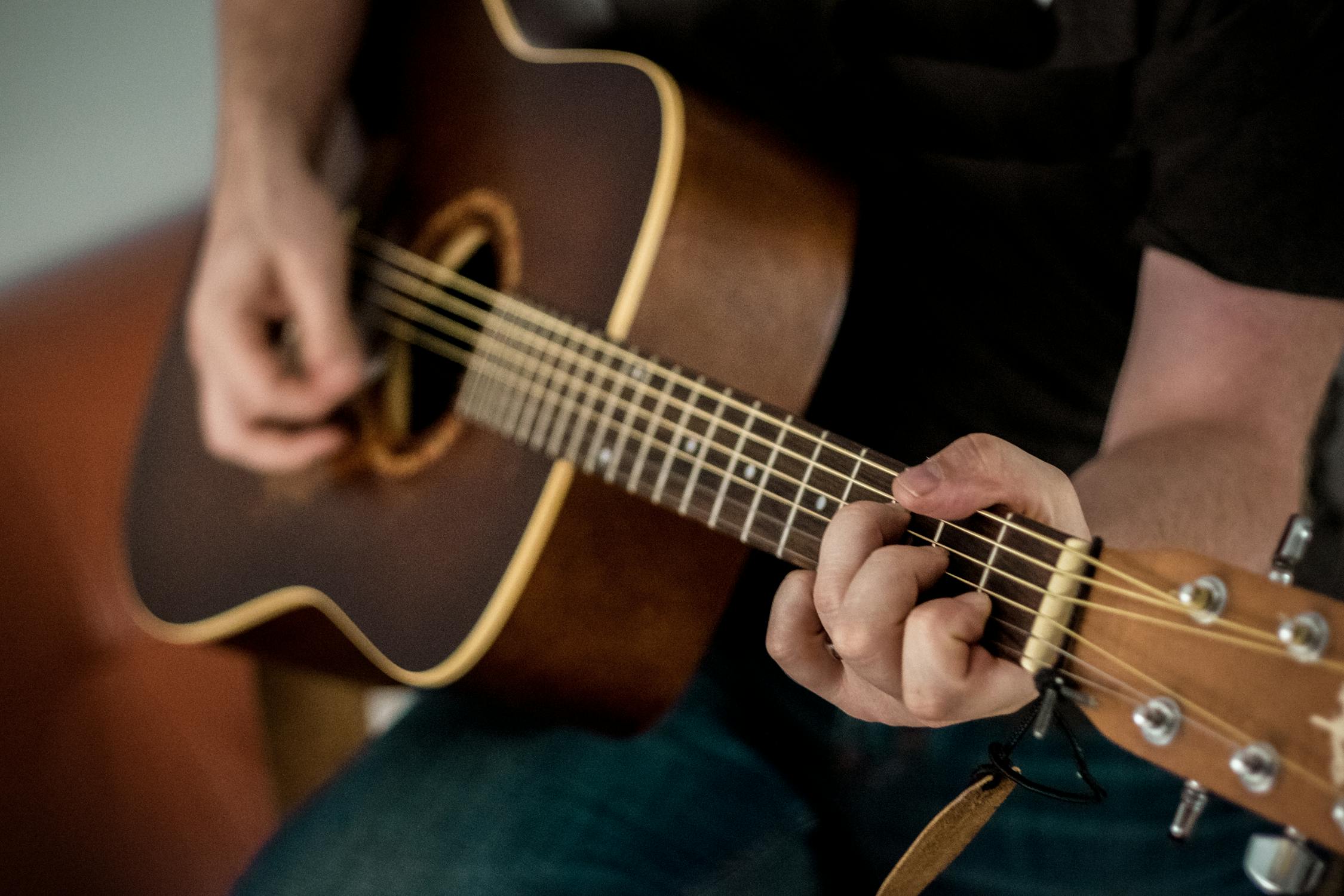5 Essential Tips for Learning to Play Guitar Quickly and Easily
Photo by 42 North from Pexels
Photo by Brent Keane from Pexels
Learning to play the guitar can be a rewarding experience, but it can also be a daunting task, especially for beginners. In this article, we will provide you with 5 essential tips that will help you learn to play guitar quickly and easily. Whether you're a beginner or looking to improve your guitar skills, these tips will be beneficial for you. By following these tips, you'll be well on your way to becoming a great guitar player.
Get Comfortable with the Guitar
Learning to play the guitar requires getting comfortable with the instrument. This means finding the right guitar and ensuring it is set up properly.
Some tips for getting comfortable with the guitar include:
- Finding the right guitar: Whether you're buying or borrowing a guitar, make sure it feels comfortable and suits your playing style. There are different types of guitars to consider, such as acoustic or electric, so take the time to find one that feels right for you.
- Set up the guitar properly: Make sure your guitar is in good condition and properly set up. This includes checking the strings, tuning the guitar, and making sure the action (the distance between the strings and the fretboard) is comfortable for your playing style.
- Proper posture and hand placement: Good posture and hand placement are important for avoiding pain and discomfort while playing. Sit up straight with both feet on the ground and the guitar resting on your right leg (if you're right-handed). Keep your left-hand wrist straight and your thumb behind the neck of the guitar.
- Find resources: There are many resources available for learning proper guitar technique, including online tutorials and local classes. Take advantage of these resources to improve your playing and avoid developing bad habits.
Learn Basic Chords and Scales
Learning basic chords and scales is crucial for developing a foundation in playing guitar. Here are some tips to help you get started:
- Start with open chords: Begin by learning the basic open chords such as C, G, D, A, and E. These chords are used in a lot of popular songs and are easy to play.
- Practice chord transitions: Once you've learned a few chords, practice switching between them. This will help you build muscle memory and make chord changes smoother.
- Memorize the major and minor scales: Knowing the major and minor scales will help you understand the structure of music and enable you to create melodies and solos.
- Use visual aids: Use chord and scale charts as a visual aid to help you memorize and practice them.
- Find songs and exercises: There are many resources available online with songs and exercises to help you practice basic chords and scales. Use these to build your skills.
Practice Consistently and Build Your Repertoire
Learning to play guitar requires consistent practice and building a repertoire of songs. Here are some tips to help you stay motivated and make progress:
- Set a practice schedule: Determine a regular practice schedule that works for you and stick to it.
- Start with easy songs: Choose songs that are within your skill level to start with and gradually work your way up to more difficult ones.
- Record and track your progress: Record yourself playing and track your progress over time to see how far you've come.
- Join a community: Join a local guitar group or online community to connect with other guitarists and get feedback and advice.
- Experiment and have fun: Don't be afraid to experiment with different styles and techniques, and most importantly, have fun while you're learning!
Practice Consistently
Learning to play guitar takes practice, and practicing consistently is key to building muscle memory and improving your playing skills.
- Create a Practice Routine: Set aside a regular time each day or week to practice, and create a routine that works for you. A good practice routine should include warm-up exercises, chord and scale practice, and time to work on songs.
- Find Motivation: Staying motivated can be a challenge, especially when you're first starting out. Try setting achievable goals and rewarding yourself when you meet them. You can also find motivation by playing with others or performing for an audience.
- Track Progress: Keep track of your progress by recording yourself or using a guitar learning app. This can help you see how far you've come and identify areas where you need to improve.
A good guitar teacher can help you explore different styles and techniques and provide you with personalized feedback and guidance. Consider taking lessons with a teacher to learn new skills and to get tips on how to improve your playing.
Explore Different Styles and Techniques
Learning to play different styles and techniques can keep your playing fresh and interesting. Some styles to consider include:
- Blues: Blues guitar is a popular style that emphasizes improvisation and soulful playing.
- Rock: Rock guitar focuses on power chords and fast, rhythmic playing.
- Fingerstyle: Fingerstyle guitar is a technique that involves plucking the strings with your fingers rather than a pick.
- Classical: Classical guitar focuses on playing complex arrangements of classical music.
Exploring different styles and techniques can help you find your own unique playing style and keep your guitar playing fresh and exciting.
Have Fun and Be Patient
Learning to play guitar takes time and patience, so don't get discouraged if you don't see progress right away. Remember to have fun and enjoy the process. Playing guitar is a rewarding experience that can bring joy and fulfillment to your life.
Trivia Facts:
- The first electric guitar was invented in the 1930s by a musician named Les Paul.
- The Beatles' "Yesterday" is one of the most covered songs in history and features just four chords.
- Jimi Hendrix is considered one of the greatest guitar players of all time, known for his innovative playing style and use of effects pedals.
- The acoustic guitar is one of the most popular instruments in the world and is often used in folk and country music.
- Learning to play guitar has been shown to have a variety of mental and emotional benefits, including reducing stress and improving cognitive function.
By following these 5 essential tips for learning to play guitar, you can improve your skills quickly and easily. Remember to get comfortable with your guitar, learn basic chords and scales, practice consistently, experiment with different styles and techniques, and don't be afraid to make mistakes. To help you on your guitar-playing journey, consider investing in a course like the Classical Guitar Online Course. This 5-week online course, which includes a course manual as a PDF download, is suitable for beginner to advanced players and is compatible with smartphones, tablets, PCs, and Macs. With a one-time payment and a 14-day money-back guarantee, there's no better time to take your guitar playing to the next level.






Comments
Post a Comment